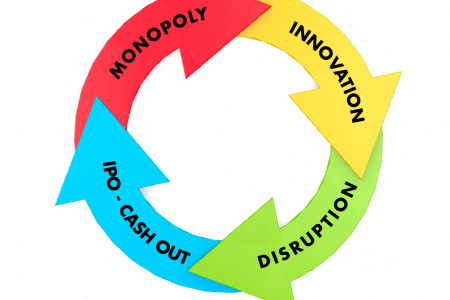Recently, one of my sons and a dozen of his musician friends took a week-long vacation to Cuba. They had to call it a “music and cultural exchange” because the United States deems “vacations” to Cuba to be illegal. Ha, whatever.
Between you and me, it was a vacation. I’m sure our State Department would be happy to know that, being musicians, they actually did play a lot of music and did experience a lot of culture exchange while they were there. Not that it matters now. Just sayin’.
In any event, as you can imagine, Cuba was on our radar screen the second our son announced his trip. And then when a film called, “Cuba and the Cameraman” just happened to pop up on our Netflix watch list, well, my wife and I decided to check it out.
Without any foreknowledge or expectations, this unassuming little documentary really knocked it out of the park for us! Journalist-auteur-writer-interviewer Jon Alpert (aka, “the cameraman”) follows the lives of three Cuban families over four decades. This in itself made for an interesting enough character study, as the families Albert introduces us to are so real and engaging, and therefore deeply familiar. Watching the film, it almost felt as if we were growing old together with them, our lives changing with theirs.
The documentary tracks these Cuban families as proxies for the Cuban people at-large in their struggle to make a living within an oppressive Communist society. Along the way, Alpert quite remarkably also develops what became a continuing “friendship” with Fidel Castro himself as he filmed several truly historical interviews with the Cuban leader, the first one occurring in the early 1970’s when the project started. And the last when Castro was old and frail—though still remarkably sharp and candid. And likeable.
Our first takeaway from this masterful production was just how absolutely charming the Cuban people appeared to be. Living a mere 90 miles from the most materialistically over-the-top culture ever to exist in the whole history of mankind; in this stifling society, life is terribly hard and the people have so very little—and yet somehow they remain mostly bright-eyed and optimistic and friendly; unspoiled, they invite us into their lives, their homes and their kitchens. If only our neighbors here were as welcoming.
Despite chronic shortages of work and practically everything else (largely the result of Western geopolitics, btw), these rugged souls are nevertheless all in for their cause. And so they hunker down, make the best of their lot in life, pitch in when their neighbors needed help, and despite it all continue to have mostly praise and respect for their father-figure-dictator, Fidel.
My son confirmed that most of the people he met in Cuba continue to this day to love Fidel, somehow.
On the face of it, this all seems incredible. After all, as Americans, we’ve been taught all our lives that Fidel Castro was a brutal, totalitarian dictator, murderer and thug. That he forced his people to live in squalor, though he himself lived high on the hog. I remember TV newscasts back in the day showing refugees on leaky boats literally dying to escape Cuba for a life in the Land of the Free.
So, how did the poor captive souls in this documentary keep smiling through it all? Why would anyone have fond feelings, let alone love, for the dictator Castro?
You would think that these people would have to have been brainwashed to tolerate such dispiriting life circumstances, let alone to think that there could be anything noble about the likes of a Fidel Castro or living in his beaten down version of a banana republic. And there is a (some would say high) degree of truth to that narrative.
Yet, it was plainly obvious just how personable Castro the man could be as Alpert’s rare interview footage attests. There was something that just captivated the people, in spite of the unkempt beard, military fatigues, and ever-present soggy cigar. They could relate to him.
Clearly, Castro was a man of his people. Now, judging the leader of a country based on how enjoyable you think it might be to drink a beer with him or her probably isn’t a very useful measuring stick. But for whatever it’s worth, I’d have to believe it would be more fun hanging out with a guy like Fidel than any of our political leaders in the U.S. today. With the exception, perhaps, being Obama. But I digress…
The day after we watched Cuba and the Cameraman, my wife mentioned it to a colleague at the college where she works. It so happens that for many years, this gentlemen has regularly traveled to Cuba—and all over the world, in fact—repairing and tuning Steinway pianos. His response was along the lines of: ‘What the Cuban government tells its citizens is all those people know. They don’t get to watch regular unfiltered TV and see what the rest of the world sees. They have no idea how bad they’ve had it all these years.’ And such.
What he’s saying is that the Cuban people have indeed been brainwashed all these years. They honestly don’t know any better. They’re essentially political hostages. Stockholm Syndrome. They’re only to be pitied. Rather hard to disagree with, right?
But can we be completely honest with each other and ourselves? Haven’t we in the U.S.A., also, been brainwashed to accept the many things that we believe to be true about our world and our place in it? Materialism, capitalism, the American Dream… Haven’t we been brainwashed to believe in the moral superiority of the United States?
Okay, before you take a swing at me for being a commie traitor, stop and ask yourself as an American—what was moral about Manifest Destiny? Or the Trail of Tears. How was slavery moral in a country that was (so ironically) founded on the precept of liberty for all? How was it moral to drop atomic bombs on our fellow human beings? I could go on and on. Can we really claim moral superiority with a track record like ours?
And what is the end result when we enjoy our freedom without regard to responsibility? What does capitalism begin to look like without sufficient rules and regulations to keep human nature in check? At what point does excessive materialism become hoarding? What will it take for US to see the limits of our way of life?
It’s been drummed into our heads from an early age in our schools, by our parents, and in our culture—that all of “this” and more is just the way things are. We’re better, we deserve everything we have, America is exceptional and, by the way, they (not us!) have been brainwashed.
Please don’t misunderstand me. I love America and feel very fortunate to have lived and grown up here. I just happen to also love the rest of the world and believe that we’re doing a terrible disservice to the whole of humanity with our jingoistic, isolationist attitudes and misplaced sense of entitlement. We could and should be so much better than that. To whom much is given, much is required, after all.
Looking back, I’m really glad my son and his friends got to visit and play music in Cuba! Someday I hope to get there, as well. UPDATE-as of the summer of 2019, the U.S.A. has (once again) made it more difficult to travel to Cuba, so my trip may not happen any time soon. Hopefully, we’ll elect better leaders in 2020.
FREE TIP!
Once last thing—Prior to our son’s trip to Cuba, my wife and I bought him a short-term travel insurance policy. It really gave us a lot of peace of mind, and if something terrible had happened, it would have taken care of his healthcare and other needs in a big way. So… IF you travel to Cuba (or ANYWHERE offshore, actually), I can highly recommend GEO-BLUE. Check it out. All the other short-term travel insurance policies we found were many times more expensive and far less comprehensive.




